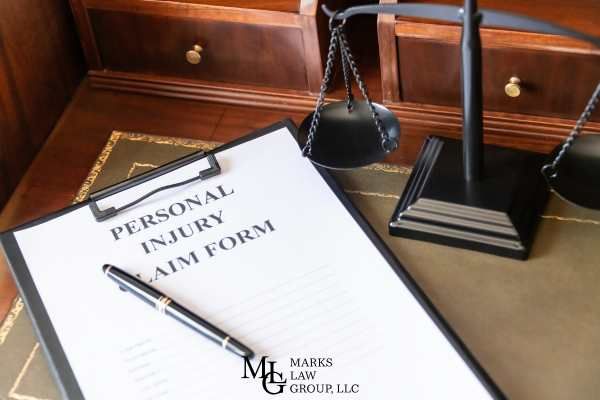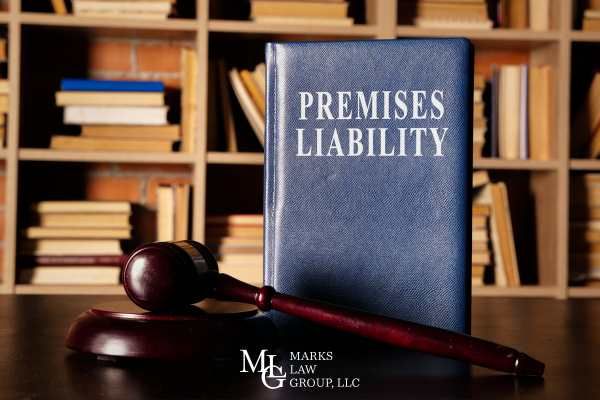Proving negligence in a premises liability case in Georgia is essential to securing compensation for injuries sustained on someone else's property. To establish negligence, you must show that the property owner failed to maintain a safe environment, which directly caused the accident. This often involves gathering evidence, such as surveillance footage, witness statements, and inspection records, to prove that the property owner was aware of the hazard or should have been.
If you’ve been injured on someone’s property, understanding how to prove negligence can significantly impact your case. Call Marks Law Group at (678) 251-9309 for a consultation, and let our experienced injury attorneys guide you through the process to build a strong case and fight for the compensation you deserve.
Key Elements to Prove Negligence in a Premises Liability Case
In a premises liability case, proving negligence is essential for securing compensation for injuries sustained on someone else’s property. To succeed, the plaintiff must establish several key elements of negligence:
Duty of Care
The property owner or occupier must owe a duty of care to the injured party. In most cases, the property owner is legally responsible for maintaining a safe environment for visitors, whether they are invitees, licensees, or, in some cases, trespassers. The duty of care varies depending on the visitor’s status.

- Invitees: Typically customers or others invited onto the property for business purposes. Property owners owe them the highest level of care.
- Licensees: Social guests who are allowed on the property for non-business reasons. The owner must warn them of known hazards.
- Trespassers: People who enter the property without permission. Property owners generally do not owe a duty of care, except to avoid willfully harming them.
Breach of Duty
Once the duty of care is established, the plaintiff must show that the property owner breached that duty. This can happen if the owner fails to address hazardous conditions, such as wet floors, broken railings, or inadequate lighting, in a timely manner. Evidence might include photographs of the unsafe conditions, maintenance records, or witness testimony about the owner’s knowledge of the hazard.
Causation
The plaintiff must demonstrate that the breach of duty directly caused the injury. This is known as causation and can be broken into two parts:
- Actual Causation: The injury would not have occurred without the hazardous condition.
- Proximate Causation: The injury was a foreseeable result of the property owner’s breach of duty. If the harm was an unlikely or unexpected outcome, the claim might fail.
Damages
Finally, the plaintiff must prove that they suffered actual harm as a result of the property owner’s negligence. This can include physical injuries, medical expenses, lost wages, pain and suffering, and emotional distress. Medical records, bills, and testimony from doctors can help substantiate the damages.
Proving negligence in an injury claim requires the ability to connect all of these elements: establishing the duty of care, showing how it was breached, proving that the breach caused the injury, and demonstrating the damages incurred. If successful, the injured party may be entitled to compensation for their losses.
How Comparative Fault Affects a Premises Liability Case
Comparative fault can play a significant role in a premises liability case in Georgia, as it can impact the amount of compensation you may be entitled to receive. Georgia follows a modified comparative fault rule, meaning that if the injured party (the plaintiff) is found to be partially responsible for their injuries, their compensation will be reduced by the percentage of fault attributed to them. However, if the plaintiff is found to be 50% or more at fault, they are barred from recovering damages altogether.
How Comparative Fault Affects Your Claim
In a premises liability case, the property owner may argue that you were partially at fault for the accident. For example, they might claim that you were not paying attention, ignored warning signs, or behaved recklessly, which contributed to the accident. If the property owner or their insurer can prove that you were partially responsible, the total amount of damages you can recover will be reduced based on your percentage of fault.
Example of Comparative Fault in Premises Liability
Imagine that you slip and fall on a wet floor in a store. The property owner claims that you were not paying attention and failed to notice a wet floor sign. If a jury or judge finds that you were 20% at fault for not noticing the sign, your total compensation for the accident will be reduced by 20%. If you were initially entitled to $100,000, you would receive $80,000 instead.
Proving Fault in Your Favor
To protect your right to compensation, it’s important to:
- Gather evidence: Strong evidence that shows the property owner’s negligence (e.g., poor maintenance or failure to warn about hazards) can counter any claims of comparative fault on your part.
- Witness statements: Testimonies from witnesses who can support your claim that the property owner was primarily responsible for the dangerous condition.
- Consult an attorney: An experienced premises liability attorney can help present your case in a way that minimizes your potential liability and maximizes the property owner’s responsibility.

In summary, comparative fault can reduce the amount of damages you are awarded in a premises liability case, but the property owner’s degree of fault will still be a major factor in your ability to recover compensation. If you are found to be less than 50% at fault, you can still pursue compensation, though it may be less than what you would receive if you were not considered at fault.
How to Strengthen Your Premises Liability Claim in Georgia
Strengthening your premises liability claim in Georgia requires a proactive approach to ensure that all essential elements of negligence are clearly established. Here are some key steps to strengthen your claim:
Gather Evidence
One of the most important steps in building a strong premises liability claim is collecting evidence. This can include:
- Photographs: Take photos of the hazardous condition or unsafe premises as soon as possible. Document the scene from different angles, including any visible hazards like wet floors, uneven surfaces, or inadequate lighting.
- Medical Records: Keep detailed records of your injuries, including doctor visits, diagnoses, treatments, and any follow-up care. Medical records will serve as key evidence for proving the extent of your damages.
- Witness Statements: If there were any witnesses to the accident, gather their contact information and statements. Their testimony can help corroborate your version of events and prove that the property owner was negligent.
- Maintenance Records: If applicable, request maintenance or inspection records from the property owner. These documents can show whether the property owner had knowledge of the hazard and failed to address it.
Consult with an Attorney
Working with a premises liability attorney is invaluable for navigating the complexities of your claim. A skilled attorney can help you:
- Prove Negligence: Your lawyer will gather the evidence needed to demonstrate that the property owner was negligent in maintaining a safe environment.
- Understand the Legal Process: Georgia's laws regarding premises liability can be complicated. An attorney will explain your rights, assist in filing your claim, and represent you in negotiations or court if necessary.
- Maximize Compensation: An experienced attorney will help ensure that all of your damages—such as medical expenses, lost wages, and pain and suffering—are accounted for when seeking compensation.
Reporting the Accident
It’s crucial to report the accident as soon as it happens. Promptly notifying the property owner or manager of the incident establishes that the owner had notice of the hazardous condition. This step can be vital in proving that the owner had a reasonable opportunity to address the issue before the injury occurred. Additionally, seeking medical attention immediately ensures that your injuries are documented right away, which strengthens your case by linking the injuries directly to the accident.
By gathering comprehensive evidence, working with a skilled attorney, and promptly reporting the accident, you can significantly strengthen your premises liability claim in Georgia and improve your chances of securing compensation for your injuries.
Let Us Help You Prove Negligence and Secure Compensation
Proving negligence in a premises liability case can be challenging, but with the right legal guidance, you can strengthen your chances of success. If you've been injured and need assistance, don’t hesitate to reach out. Contact us today to schedule a consultation and take the first step toward securing the compensation you deserve.
